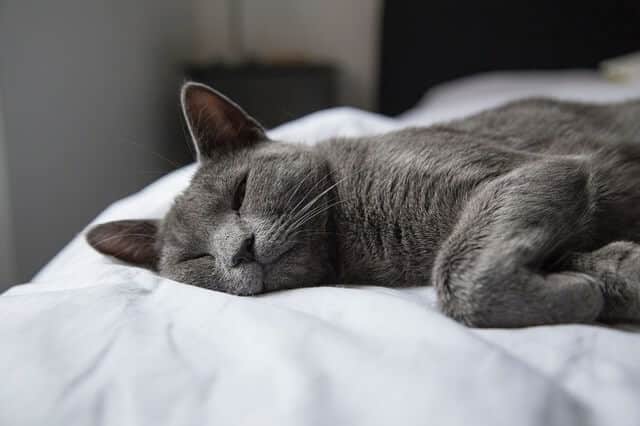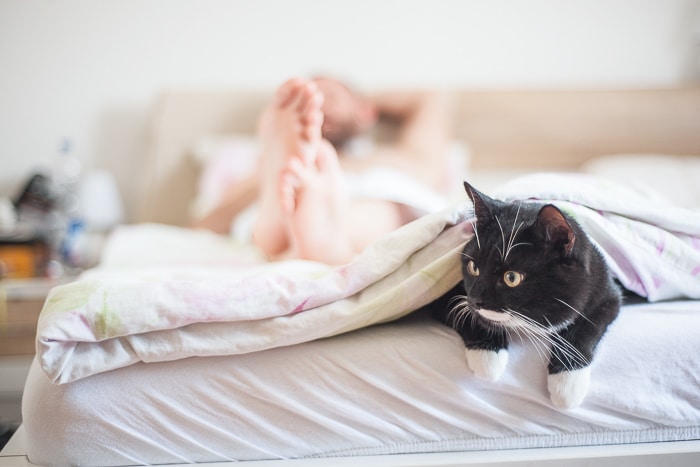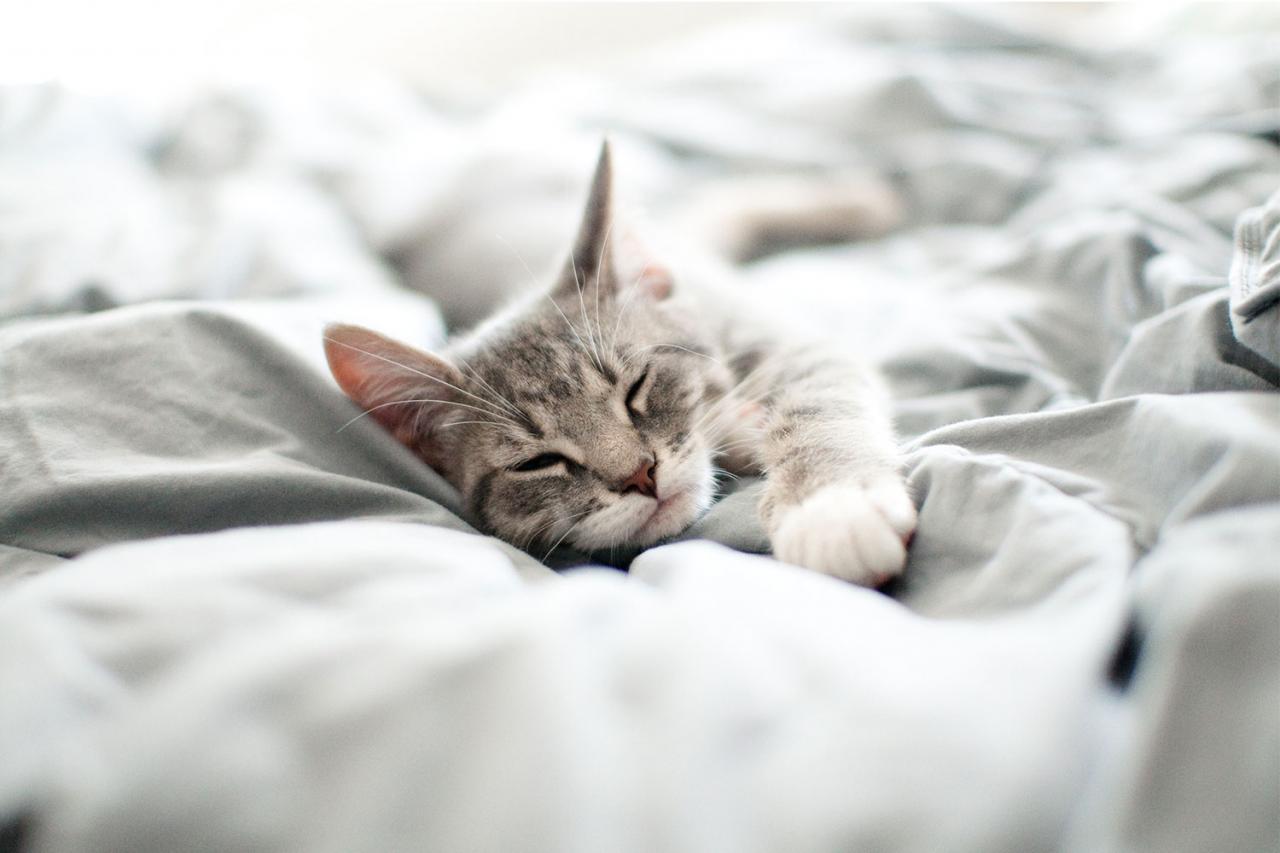Cats are known to be mysterious creatures with a mind of their own. And most cat owners will agree that they will willingly go the extra mile to keep their cats happy in hopes their cat will return the love, only to be let disappointed to learn their cat isn’t pleased with the efforts made. Yet, we never learn our lesson and continue to find ways to earn our feline’s approval.
So picture this: you go out your way to buy your feline friend, the best bed there is out there. You’re nearly broke by the end of the shopping trip and are super excited to introduce your cat to the bed. It seems like you’re successful, seeing as your cat has sniffed every inch of the mattress, has dug her paws and kneaded it to her heart’s content, and seems to have retired there for the night. Imagine your surprise when you wake up to a vibrating warm patch on your legs. That’s right; your cat rejected her bed and has settled comfortably in yours.
Now you’re probably confused about why your cat does this. Are they watching you in your sleep planning their grand attack, or is there a more adorable reason for their attraction towards your bed?
Cats sleep for up to 15 hours a day, and when they are asleep, they are at their most vulnerable. The reason why they sneak into our beds (and our hearts) is that they find a great sense of security with their owners. They often look for a place or even a person who they trust and comfortably sleep away. So, in essence, in their catty way, they are letting you know that they trust you a lot. It also helps that they find you, your blanket, and your duvet as an excellent source of heat and sneak into your bed to keep warm. You are, for all intents and purposes, their heater. I’m sure none of us mind having to take on this role!
Now that we’ve answered the question as to why there are a few other questions that come into mind when we think about our cats sleeping away in our beds and sometimes even on our heads.
To start with:
is it okay for my cat to sleep on my bed?

Now, this is a loaded question and requires a bit of discussion.
Studies find that over two-thirds of cat owners happily invite their feline friends into their beds. In doing so, it’s not only your cat that enjoys the cuddles. Not only are they warm, soft, and cozy to sleep with, they provide a sense of comfort for you. Animals, in general, provide excellent stress relief at the end of the day, and nothing drains away from your worries than your cat laying its head down next to you while you scratch or pat it. Having your cat sleep next to you can also help soothe your anxiety as well.
Their rhythmic purring can even stimulate the white noise effect and aid you in falling asleep better as well.
Sleeping with your cat on your bed is also a great way to bond as well. Despite all the jokes we crack about cats being independent and not being loyal animals, which is hardly the case. Cats are loyal animals, and the greater your bond, the more they stick by your side. They might not show it, but they also want attention, and this is the perfect way to give it to them, on their terms, of course!
Now for the second question:
are there any downsides to having your cat sleep with you?

Whether you allow your cat into your bed is a personal choice, it’s only fair that you know the downsides of sharing your bed with your feline.
To start with, it makes a difference whether your cat is an indoor cat or an outdoor cat. While cats are known to clean animals and are often found grooming themselves, they aren’t prone to carrying around some unwanted stuff and, especially if they are outdoor cats. Outdoor cats are exposed to all sorts of things such as mud, worms, insects, fleas, and mosquitos and may even carry some in with them and inadvertently into your bed. And even your indoor can bring some unwanted material into your bed, such as their litter pebbles stuck in their paws. So for hygiene purposes, you might be hesitant to allow them into your bed with you.
Cats are nocturnal creatures, which means they spend most of the day sleeping away and are most active at night. So what might start an innocent sleepover may result in a sleepless night. Your cat might want to leave your room in the middle of the night, and if your room door is closed, they might start making noise such as dropping things on the floor or even pawing on your face. They may also want to use their litter box, and unless you keep a spare one in your room, they might pee on your bed.
And it’s only a natural fear that you might end up accidentally squishing your cat mid-sleep, and they may, in turn, not so accidentally end up clawing your face in surprise or fear (or even retaliation).
Having your cat sleep on your bed, near your face, may also trigger allergies, especially if your cat is long-haired.
Conclusion:
So the pros and cons are in front of you, and you decide to make. If you feel the cons outweigh the pros and have the heart to ignore your cat’s loving looks and kick them out for the night, it is entirely understandable. Well, to us at least. Your cat, on the other hand, might be planning its grand attack on you for this betrayal. Good luck!
